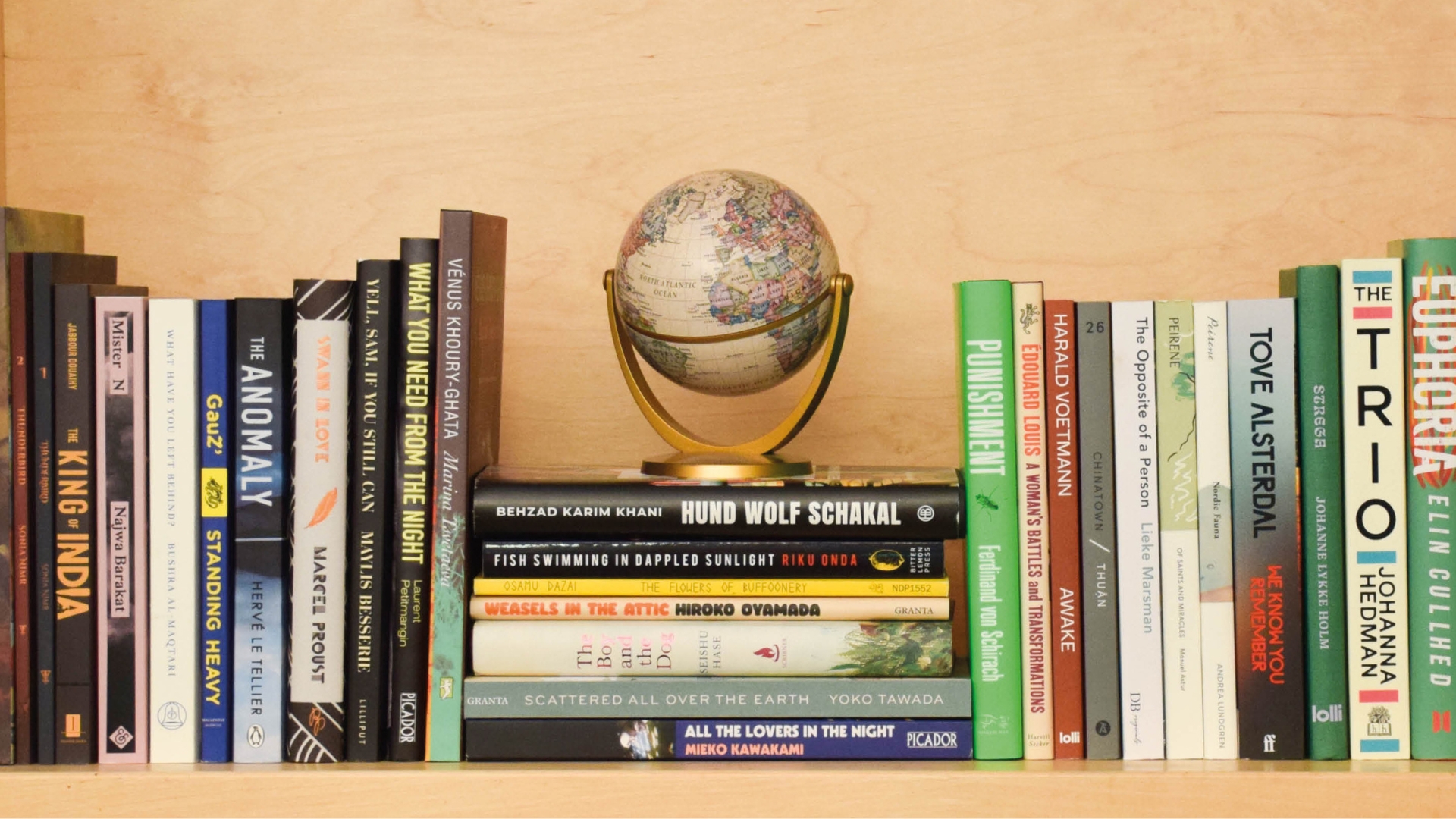
The Society of Authors (SoA) has announced the 50 works shortlisted across eight prizes for translation, with a shared £28,000 prize fund.
The winners will be will be celebrated at a ceremony on Wednesday 7th February 2024, at the British Library’s Knowledge Centre.
The shortlist for the inaugural Great Britain Sasakawa Foundation Translation Prize, which is awarded for translations into English of full-length Japanese-language works, will be awarded alongside seven others, including the Bernard Shaw Prize and Goethe–Institut Award, which are both awarded biennially.
Ten languages are represented across the prizes, with English translations from Vietnamese and Danish featured on the TA First Translation Prize shortlist.
The shortlist for the Bernard Shaw Prize features Jennifer Hayashida, for a translation of Euphoria by Elin Cullhed (Canongate Books), and Kira Josefsson, for translating The Trio by Johanna Hedman (Hamish Hamilton). The biennial award is for translations into English of full-length Swedish language works of literary merit and general interest. The winner is awarded £3,000 and a runner-up is awarded £1,000.
John Litell is also on the list for his translation of Andrea Lundgren’s Nordic Fauna (Peirene Press), while Alice Menzies is in the running for her translation of We Know You Remember by Tove Alsterdal (Faber). Alice E Olsson is also on the shortlist for the Bernard Shaw Prize, for a translation of The Herd by Johan Anderberg (Scribe UK), alongside Saskia Vogel, for a translation of Strega by Johanne Lykke Holm (Lolli Editions).
This year’s judges are Alison Flood, Nichola Smalley and Amanda Svensson, who said: “From the lyrical to the matter-of-fact, these translators have captured the essence of each of their authors tone, ambition, quirks and strengths with accuracy and verve. This shortlist is a testament not only to the power of great literature, but also the power of great translation.”
Meanwhile, the winners of the Premio Valle Inclán award – an annual prize for translations into English of full-length Spanish language works of literary merit and general interest – will be awarded £3,000, while a runner-up will get £1,000. Jennifer Croft in vying for the award, for a translation of Two Sherpas by Sebastián Martínez Daniell (Charco Press), alongside Simon Deefholts and Kathryn Phillips-Miles, who translated Take Six: Six Spanish Women Writers by various authors (Dedalus Limited).
Forrest Gander is also on this year’s list, for a translation of It Must Be a Misunderstanding by Coral Bracho (Carcanet Press), as are Rosalind Harvey, for a translation of Still Born by Guadalupe Nettel (Fitzcarraldo Editions), and Victor Meadowcroft, for a translation of This World Does Not Belong to Us by Natalia García Freire (Oneworld Publications). William Rowe and Helen Dimos are shortlisted as well, for their translation of Trilce by César Vallejo (Veer Books).
Moreover, the annual Saif Ghobash Banipal Prize, established by Banipal Magazine and the Banipal Trust for Arab Literature, is for published translations from Arabic of full-length works of imaginative and creative writing of literary merit and general interest. The winner is awarded £3,000.
The shortlist features Bruce Fudge for a translation of The Turban and the Hat by Sonallah Ibrahim (Seagull Books) and Paula Haydar for a translation of The King of India by Jabbour Douaihy (Interlink Books). Paula Haydar and Nadine Sinno are also on the list, for a translation of Firefly by Jabbour Douaihy (Seagull Books), as are Sawad Hussain, for a translation of What Have You Left Behind? by Bushra al–Maqtari (Fitzcarraldo Editions), and Luke Leafgren, shortlisted for a translation of Mister N by Najwa Barakat (And Other Stories). M Lynx Qualey is on the list this year, for a translation of Thunderbird: Book One and Thunderbird: Book Two by Sonia Nimr (University of Texas Press).
The judges said of the shortlisted works: “Their protagonists struggle against circumstances and systems that are overwhelming. Moments of kindness, joy, and serenity stand out against the grim backdrop. At once poignant, haunting and beautiful, the works reflect the current issues and events that Arab authors are addressing.”
